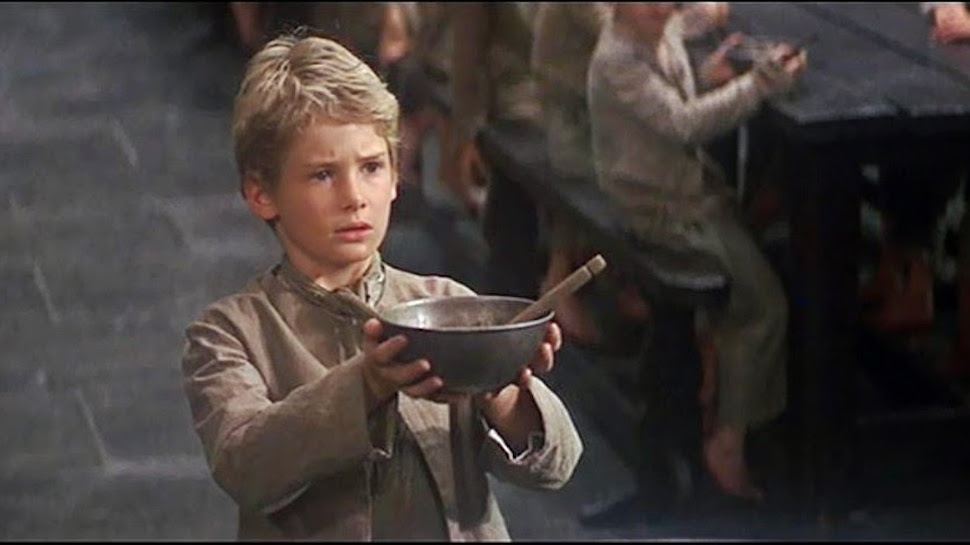You will know the name Thomas Piketty via his seminal book on inequality, Capital in the Twenty-First Century. Like Stephen Hawking’s A Brief History of Time, Piketty’s was a best-selling work read by almost no-one.
Here’s the gist. Piketty used masses of evidence to prove the bleeding obvious: inequality is getting worse, everywhere. One of his arguments (which I dearly hope is wrong) is that staggering inequality is the norm, and the relative egalitarian nature of the post-war period was a statistical blip. Policies once considered mundane and moderate: progressive taxation, equitable access to healthcare and education, minimum wage as a living wage – have now become vote-winners for ‘radicals’ like Bernie Sanders (these are still the standard, moderate policies of the left in Australia, though are increasingly under attack).

I’m not here to talk about Piketty’s book, but rather his recent related essay: The Brahmin Left versus the Merchant Right: Rising Inequality and the Changing Structure of Political Conflict. In it, he advances another argument of the bleeding obvious: the intellectual left and the business right now dominate political parties, and this has resulted in the working class (and lower-middle class) being disenfranchised. He calls this a ‘multiple elite party system’.

The gist of his essay: the left-wing Brahmin elite are private-school and then university educated; they mostly live in the cities, and consider themselves to be cosmopolitan and enlightened. The Merchant right attend the same schools and universities, also live in the cities, and believe in the neo-liberal version of globalisation.
Thus, the elites on the left and the right furiously agree on certain matters: usually the orthodoxies of neo-liberal economics, such as high immigration, the destruction of the manufacturing sector in the West, and the outsourcing of well-paid jobs to lower cost jurisdictions overseas. This is partly why the marginalised – the working class, the retrenched and redundant, those scrambling to pay medical and food bills – make ‘populist’ decisions all the experts loathe (and completely fail to understand). Brexit would be one example.
Piketty asks the question: why do democratic systems find it so difficult to combat growing inequality? The answer has three parts: firstly, those with economic power have all the political power; secondly, those in power subscribe to the neo-liberal consensus; and third (restating the first point, but this needs to be restated), the elite have no lived experience of poverty. They’ve never experienced a foreclosure, or life on the minimum wage, or struggled with increasingly underfunded public health and education systems.
Piketty charts the evolution of the left in US, the UK, and France, and their transition from parties of the poor, to parties of the educated elite. For example: in 1996, Bill Clinton’s voting base was non-college educated (60%), in 2016, Hillary’s base was 45% non-college.

One of the most stunning graphs in Piketty’s essay is below. It shows, that for the first time since 1940, the very rich (top ten percent) now vote Democrat.

Which may be a Trump-related anomaly, but also explains a trend I’ve noticed on Twitter: individuals I assumed would have enlightened views – US liberals – holding opinions that appear reactionary and morally repugnant. Namely, their contempt for the poor and working class. By repugnant, I mean mocking steel workers who lose their jobs, or laughing at the increasing rates of suicide among poor white men.
The Literary Elite
Which brings us to the publishing industry. Much like social media and the university sector, the writing community is dominated by the Brahmin Left. Wealthy, educated, cosmopolitan, and in general largely ignorant of condition of those most marginalised society: the working class and poor (which is to say, about half of the country: the working class and poor make up 48% in Australia, 55% in the US).
This explains why some dimensions of diversity are celebrated and improving (more women, more LGBT+, more non-white writers – all of which, I should add, I welcome), and other aspects of inclusion are declining and unremarked (the number of writers from poor backgrounds). I find this dichotomy inexplicable, given the intersections are self-evident: people of colour and the disabled, for example, are all overrepresented in the poor and working class.

A recent documentary by Kit De Waal for the BBC: Where Are The Working-Class Writers? – found that in the UK, the publishing industry was one of the very worst when it came to social mobility. 60% of writers come from the top 30% professional designations (that is, from professional or managerial backgrounds). Staggeringly, over 40% of writers come from the “very very elite” – the sons and daughters of CEOs, doctors, and lawyers. That is, 40% of writers are scions of the 1%.
I find this morally untenable, and a literary road to obsolescence (for are the rest of us really going to be content reading only the literature of the 1%?)
Piketty’s essay is useful insofar as it sheds light on an issue I have struggled with for some years: the widespread bigotry in the writing community towards the poor and less-educated. Lorraine Berry, in her essay ‘How the Literary Class System is Impoverishing Literature’, argues:
“Literature should not function as a dividing line between the haves and the have-nots, just as the expansion of the literary world to more fairly represent a world in which people are more than white or straight or male has added untold riches to the canon, so too would the stories of the working-class go a long way toward improving our representations of and understanding of the greater world. Most important, at least for me, [is] knowing that it’s not class or money that determines whose writing is worth publishing…”
I’m not in high literary circles, either. The place I write – science fiction – was once a home for the working class. Genre fiction was traditionally associated with, and written for, the lower-educated and the working class, which explains the historical snobbery of the elite towards genre. Author Adrian McKinty, notes, when he was growing up in the 1980s: “Highbrow writers mocked not just the clumsiness of genre writing but the poor plebs who thought they were reading real novels. The class dimension was rarely mentioned then, but was always bubbling beneath the surface.”
This division is fading, and genre writing is increasingly getting the literary kudos it deserves. Ursula Le Guin was belatedly recognised as a giant of literature, David Mitchell writes speculative fiction the highbrow endorse, and Nobel prize winner Kazuo Ishiguro has tried his hand at both  fantasy and science fiction.
fantasy and science fiction.
In the process, however, genre is being gentrified. I’ve written about this previously: the corollary of growing inequality, shrinking advances, and lower median income for writers, is that it becomes harder and harder for those from poorer backgrounds to become novelists. These days, genre writers talk of their Master of Fine Arts (this seems to particularly true of US writers), as part of their claim to genre credibility, failing to recognise just how privileged one has to be to do one in the first place.
My parents were working class; no-one from my family had ever been to university. I didn’t think I’d be the first. But I got there, eventually, because in Australia it is still possible for the working class to change their circumstances. But this mobility, as Piketty argues, is in decline.
I’m not sure what the numbers are like now, for writers from working-class backgrounds. If I were setting the line, I’d put the over/under at 12%. We need to do better. I think it is fair to include class in the discussion of diversity, and to treat class bigots with the same disdain we reserve for homophobes, racists, and sexists.
The novel is one of the few places left in the modern world that enables the individual to stand in another’s shoes; to truly empathise. Here, unlike just about everywhere else, we can still hear from those outside our own bubble. Literature is a bridge between communities, cultures, between minds.
It’s too important to be left solely to the elite.


This article is Gold!
Cheers mate